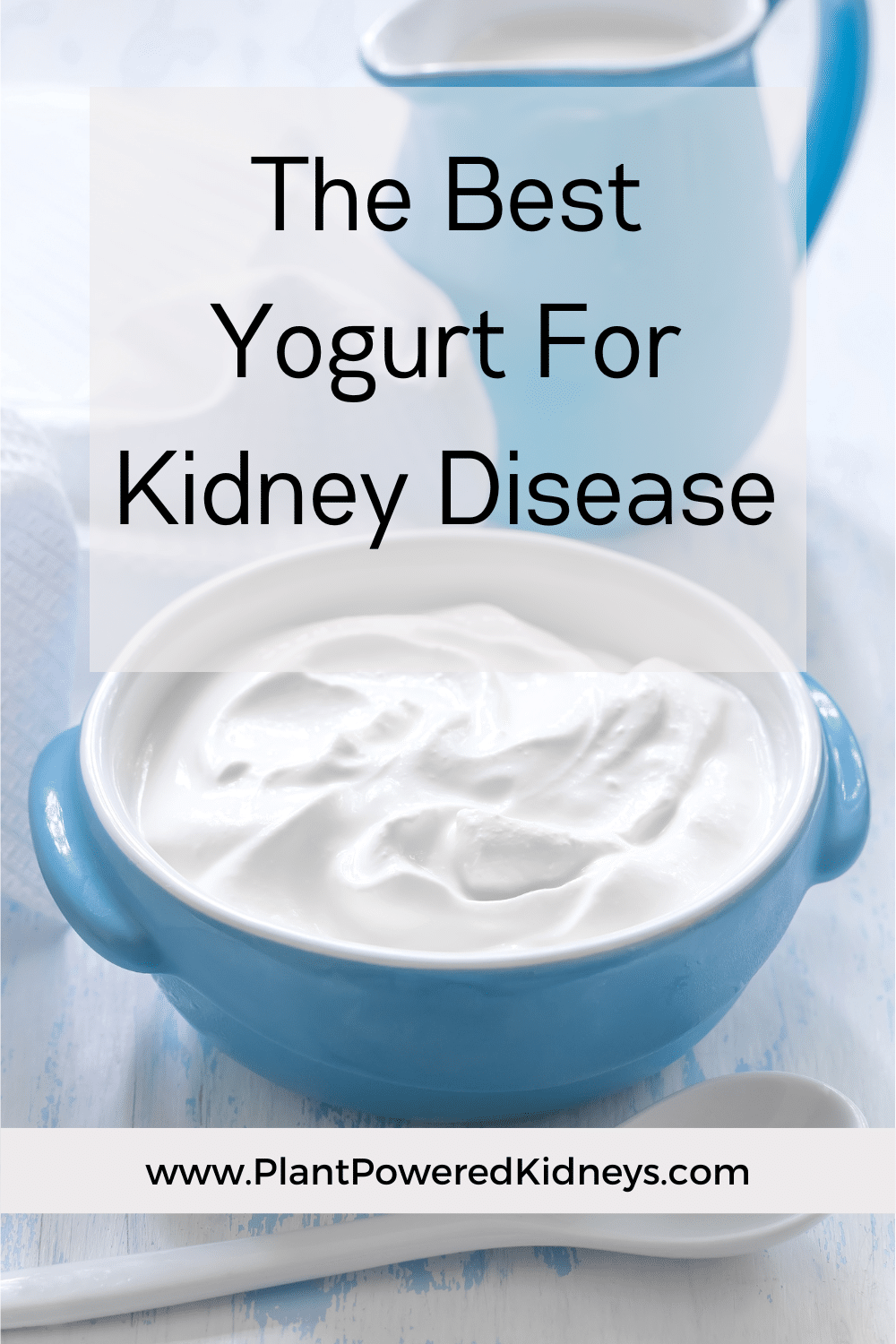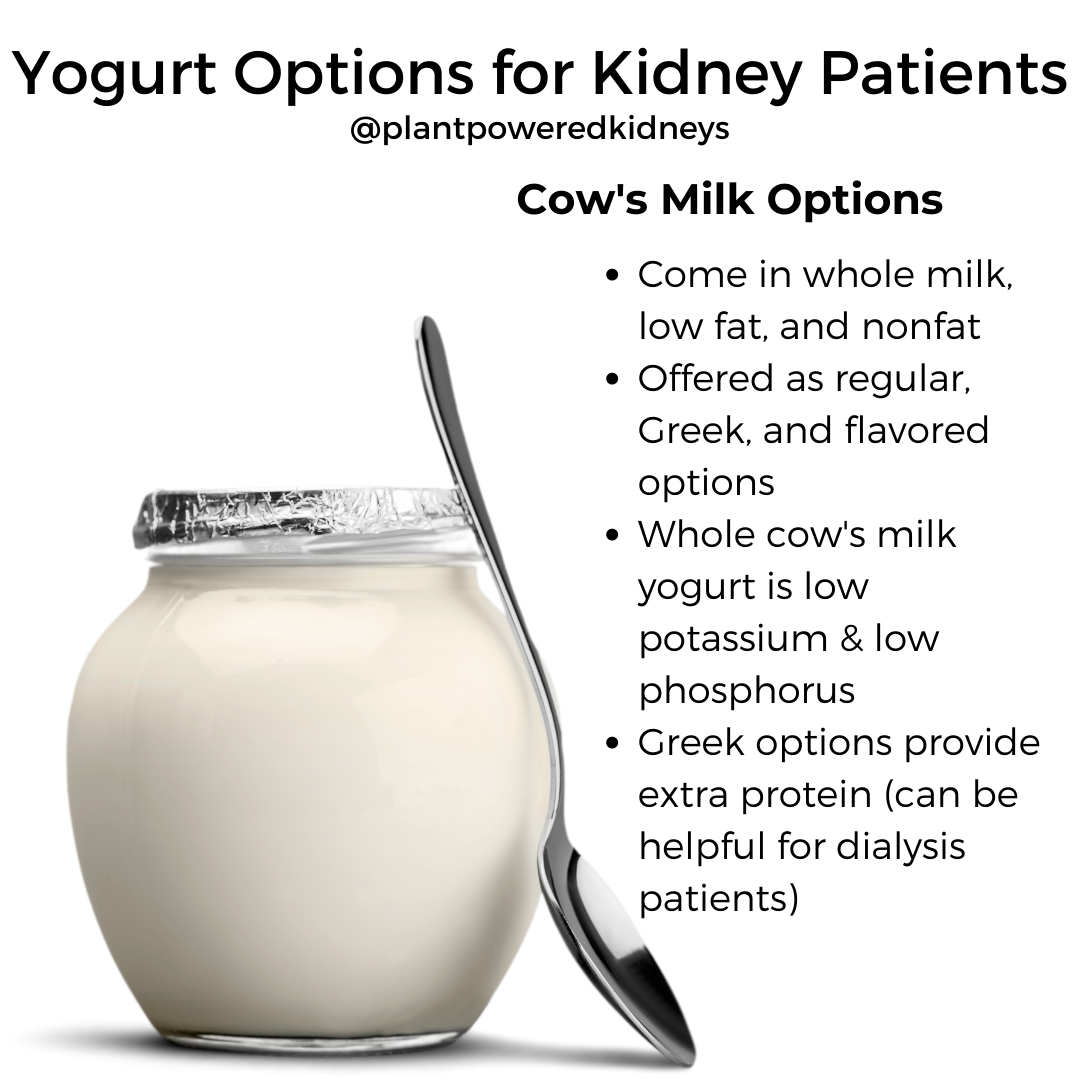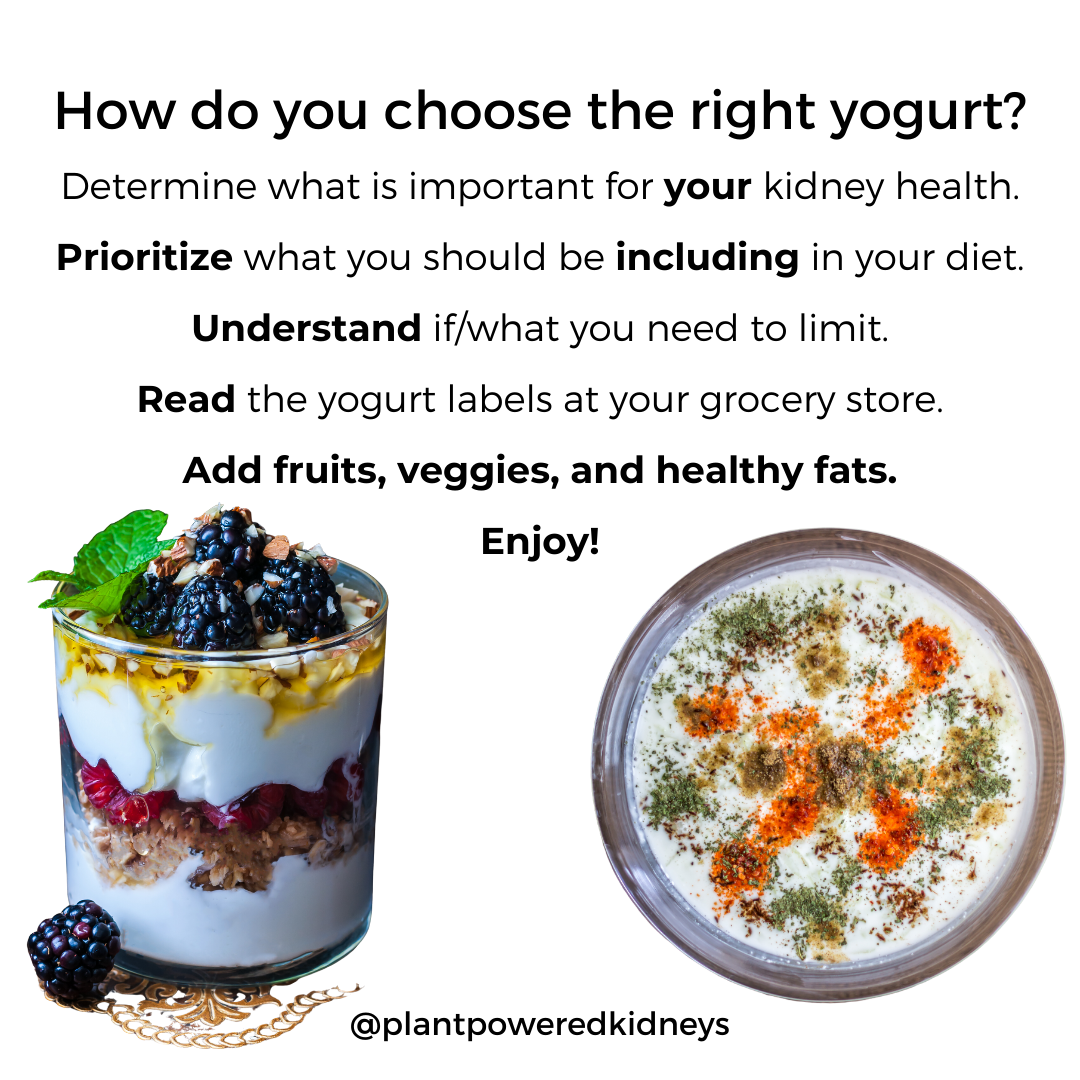Kidney disease patients often struggle to find foods that are both nutritious and safe for their condition. Fortunately, yogurt is an excellent food option that provides a range of benefits for individuals with kidney disease. In this article, we will explore the best yogurt for kidney disease patients, including its nutritional benefits and how to choose the right type of yogurt. We will also share some delicious yogurt recipes that are safe and easy for kidney disease patients to incorporate into their daily diet. Whether you’re a kidney disease patient or a caregiver looking to help your loved one maintain a healthy diet, this guide will provide valuable insights and recommendations for incorporating yogurt into a kidney-friendly diet.
Table of Contents
What is Yogurt?
Yogurt is a dairy product that is made by fermenting milk with live bacteria cultures.
This fermentation process creates a tangy, creamy, and thick consistency that many people enjoy.
Yogurt can be made from different types of milk, including cow, goat, and sheep milk. It can also come in plant-based alternatives including coconut, almond, and cashew milk bases.
Beyond the milk base, yogurt also comes in various flavors and styles.

Types of Yogurt
There are many yogurt options available to kidney patients these days!
Here are examples of different types of yogurts and how they may be good or not-so-good for kidney patients.
Regular Yogurt
Regular yogurt is made from whole milk and is not strained, resulting in a thinner consistency compared to Greek yogurt.
It can come in whole milk, low-fat, and nonfat options. Lower-fat yogurts are generally more recommended than whole-fat options because the saturated fat content is reduced in low-fat and nonfat options.
The amount of protein in regular yogurt is slightly lower than Greek yogurt, making it a better option for those on a low-protein diet.
While regular yogurt is a good source of protein and other nutrients, it may also contain high levels of phosphorus, potassium, and sodium, which can be harmful to kidney disease patients.
Thus, it’s important to understand individual needs and restrictions when choosing the best yogurt for kidney disease.
Greek Yogurt
Greek yogurt is made by straining regular yogurt, which removes excess liquid and results in a thicker, creamier texture.
It is a good source of protein and is lower in sugar compared to regular yogurt. For those with higher protein needs, like dialysis patients, Greek yogurt can be a great option.
Plain Greek yogurt can be used as a substitute for sour cream to provide more protein and less saturated fat.
However, it may also contain high levels of phosphorus and sodium, so kidney disease patients should choose low-phosphorus and low-sodium options when possible.
Plant-Based Yogurt
Plant-based yogurts, such as soy or almond milk-based yogurts, are an excellent option for individuals with lactose intolerance or who follow a vegan diet.
Some benefits of plant-based yogurt for kidney patients are that these yogurts are generally lower in phosphorus, protein, and sodium compared to dairy-based yogurts.
However, plant-based yogurts may also come with added phosphates.
It’s very important for kidney patients to know where to find added phosphates because the kidneys may not be able to filter excess phosphorus out of the blood.
Learn more about a low-phosphorus diet here.
It’s important to check the nutritional content of plant-based yogurts before purchasing them.
Flavored Yogurt
Flavored yogurts often contain added sugars, which can be harmful to kidney disease patients. Many contain around 16 grams of added sugar per serving, which is equal to 4 teaspoons of sugar.
If choosing a flavored yogurt, try comparing a few different brands and flavors. Selecting the option with the least amount of added sugar can be a great choice for a kidney patient.
Added sugar can be found on the nutrition label under carbohydrates, and listed specifically as added sugar.
Yogurt is also a source of carbohydrates, meaning there will be naturally occurring sugars as well. In this case, specifically limiting added sugars can be helpful for kidney patients.
In summary, while yogurt can be a healthy and nutritious food choice for kidney disease patients, it’s important to choose low-phosphorus and low-sodium options. Potassium content will vary between types of yogurts – as we will dive into later in the article.
Plant-based yogurts can also be a good option, but it’s important to check the nutritional content, especially for added phosphates. Flavored yogurts should be consumed in moderation or replaced with low-sugar options or plain yogurt with natural sweeteners.
Milk Choices for Yogurt
The type of milk used to make yogurt can also impact its nutritional content and potential benefits or drawbacks for kidney disease patients.
Here are some common types of milk used to make yogurt and how they can impact kidney disease patients:

Cow’s Milk
Cow’s milk is the most common type of milk used to make yogurt.
While it’s a good source of protein, calcium, and other nutrients, it can also be high in phosphorus and potassium, which can be harmful to individuals with kidney disease.
However, choosing whole-fat, regular yogurt can be a better animal-based yogurt choice when following a low potassium and low phosphorus diet.
Goat’s Milk
Goat’s milk is lower in lactose and casein compared to cow’s milk, making it a good option for individuals with lactose intolerance or milk allergies.
However, goat’s milk is also high in potassium, which can be harmful to individuals with kidney disease.
Sheep’s Milk
Sheep’s milk is higher in protein, calcium, and other nutrients compared to cow’s milk.
However, like goat’s milk, it’s also high in potassium, which can be harmful to individuals with kidney disease.
Comparison Table of Animal-Based Yogurts
Here is a table comparing the nutritional values of different animal-based yogurts.
Each amount is based on 100-gram serving, or about ⅔ cup.
| Type of Yogurt | Calories | Protein (g) | Potassium (mg) | Phosphorus (mg) | Calcium (mg) |
| Cow’s Milk, Regular (whole) | 78 | 4 | 164 | 101 | 127 |
| Cow’s Milk, Regular (skim/low-fat) | 63 | 5 | 234 | 144 | 183 |
| Cow’s Milk, Regular (non-fat) | 56 | 6 | 255 | 157 | 199 |
| Cow’s Milk, fruit-variety (non-fat) | 95 | 4 | 194 | 119 | 152 |
| Cow’s Milk, Greek (whole) | 95 | 9 | 147 | 126 | 111 |
| Cow’s Milk, Greek (low-fat) | 73 | 10 | 141 | 137 | 115 |
| Cow’s Milk, Greek (non-fat) | 60 | 10 | 141 | 136 | 111 |
| Goat’s Milk | 71 | 4 | 224 | n/a | 118 |
| Sheep’s Milk | 82 | 6 | n/a | n/a | 176 |
Keep in mind nutrition information will vary by product and brand. Be sure to read the nutrition label on your yogurt of choice to ensure it has the right nutrition content for your own needs.
Plant-Based Milk
Plant-based milk can be used to create yogurt as well. Examples of plant-based yogurts include;
- Soy yogurt
- Cashew yogurt
- Coconut yogurt
- Almond yogurt
- Oat yogurt

In some cases, brands may use a combination of different plants to change the texture, consistency, and mouthfeel.
Plant-based yogurts are often lower in phosphorus and potassium compared to dairy-based yogurts. This is often due to the lower bioavailability of phosphorus and potassium in plants.
However, it’s important to check the nutritional content of plant-based yogurts before purchasing them.
Comparison Table of Plant-Based Yogurts
Below is a table of plant-based yogurts. Some of the nutrition information comes from specific brands.
It’s important to know that nutritional information may vary between different brands and products.
Do your research and read the nutrition information and ingredient list when doing your own grocery shopping.
Not all products will include the amount of phosphorus, or potentially even potassium, on the nutrition label.
| Type of Yogurt | Calories | Protein (g) | Potassium (mg) | Phosphorus (mg) | Calcium (mg) |
| Soy Yogurt | 94 | 4 | 47 | 38 | 118 |
| Cashew Yogurt (100 mL) | 51 | 2 | 46 | n/a | 8 |
| Coconut Yogurt | 64 | <1 | 27 | 2 | 170 |
| Almond Yogurt | 82 | 3 | 93 | n/a | 38 |
| Oat Yogurt | 53 | 2 | n/a | n/a | 0 |
In summary, the type of milk used to make yogurt can impact its nutritional content and potential benefits or drawbacks for kidney disease patients.
Choosing low-fat or skim milk yogurts can help reduce the amount of phosphorus and potassium in cow’s milk yogurts.
Goat’s milk and sheep’s milk are high in potassium and may not be the best options for individuals with kidney disease.
Plant-based yogurts can be a good option, but it’s important to check their nutritional content.
Nutritional Benefits of Yogurt
Yogurt is an excellent source of nutrition, and it provides a range of health benefits. For kidney disease patients, some of the key nutritional benefits of yogurt include:
Low in Phosphorus
Many kidney disease patients need to limit their phosphorus intake, as high levels of phosphorus can lead to complications. Yogurt can be a low-phosphorus food, making it an ideal choice for kidney disease patients.
Variety in Protein
Kidney patients have a wide range of protein needs, as some may be on a low-protein diet and some may require extra protein to support dialysis treatments.
Yogurt is a good source of high-quality protein, which can help kidney disease patients maintain their muscle mass. As mentioned before, yogurt can also fit into a low-protein diet, making it acceptable for a variety of kidney health concerns.
Probiotic Benefits
Yogurt is well known for being a good source of probiotics. We’ll dive more into this topic later in the article!
Other Nutritional Benefits
Yogurt is also a good source of calcium, vitamin B12, and other essential nutrients that can help support overall health.
It has also been shown to potentially help with insulin sensitivity. This can mean yogurt supports better blood sugar control.
Diet Variety
Adding yogurt into a renal diet can help provide more options to create fruit- and veggie-filled dishes. The more variety and options a kidney patient has to enjoy, the more satisfaction they can experience from following a renal diet.
Yogurt and Probiotics
A healthy gut microbiome is important for overall health, and it may also help support kidney function and even reduce the risk of kidney disease progression in some cases.
What are probiotics?
Probiotics are tiny living things that help our bodies stay healthy.
We can count how many of these tiny things are in a probiotic by using a special unit called “colony forming units” (CFU). This helps us know how many healthy probiotics are in something we might eat or drink.
How many probiotics are in yogurt?
Yogurt can contain anywhere from 90 billion to 500 billion CFU per serving.
It does not necessarily mean certain yogurts are “better” by having a higher number of CFUs. Instead, it’s more helpful to look at a variety of strains of probiotics to get a variety of healthy bacteria.
Companies are not required to include how many CFUs are in a container. However, many may provide the information if you reach out to their customer service.
How much yogurt should I eat a day for probiotics?
Research for how much yogurt to eat for probiotic benefits varies significantly. Some studies report no change while others do show promise.
One study even looking at high amounts of yogurt found no gut health benefits. Some participants ate up to 3.5 cups of yogurt daily without associated benefits.
That’s not to say probiotics aren’t good.
One of the great benefits of getting probiotics from food rather than supplements is that food has more probiotics, and comes with other helpful nutrients.
So, a better approach to probiotic benefits is including yogurt up to one serving per day – if you like it.
There are other probiotic-rich foods that can be included in small amounts including:
- Cheese
- Kombucha
- Sauerkraut
- Miso
- Kimchi
- Tempeh
While some of these foods can be high in sodium, just a small amount can provide gut-healthy benefits.
Choosing the Best Yogurt for Kidney Disease
When choosing yogurt for kidney disease patients, it’s essential to pay attention to the nutritional content and ingredients. Here are some tips for selecting the best yogurt.
Understanding nutrition labels
As mentioned, nutrition labels will provide a lot of great information to help you find the best yogurt option.
Look for yogurt that is low in phosphorus by including no phosphates. Also, choose a yogurt that is low in sodium.
Depending on your own protein needs, determine if a low-protein yogurt or high-protein yogurt option is best for you. Limit or avoid yogurts with added sugars, which can contribute to health complications.
Recommended Yogurt Brands
As we’ve discussed, there are plenty of options for yogurt for kidney disease patients. Here are some brands that have been dietitian-reviewed and often approved. (But note specific products and recommendations will vary.)
If choosing an animal-protein-based yogurt, some recommended brands for kidney disease patients include Chobani, Fage, and Stonyfield Organic.
There are many plant-based yogurt options available in stores these days! Some examples of plant-based yogurt brands include;
- Kite Hill
- Califia
- Lavva
- Nancy’s
- Forager
- Chobani
- Silk
- Good Karma
- So Delicious
- Good Plants
These brands offer low-phosphorus and low-potassium yogurt options that are safe for kidney disease patients. As mentioned, added sugars will vary between brands and products, so read those labels and choose the lower-sugar options.
Tips for choosing the best yogurt for kidney disease patients
Choose plain or unsweetened yogurt to avoid added sugars. Add sweeteners like fruit (thawed, frozen fruit works well for this), naturally-sweetened fruit preserves, or honey.

Additionally, consider using non-dairy yogurt alternatives, such as soy or almond milk-based yogurt, if you want to lower protein, phosphorus, or even potassium for your yogurt choices.
Be sure to read nutrition and ingredient labels, and discuss personal nutrition choices with your healthcare team.
Yogurt Recipes for Kidney Disease Patients
Here are some kidney-friendly yogurt recipes that are easy to make and delicious.
Breakfast: Yogurt Parfait
Layer your yogurt of choice with fresh berries and low-phosphorus granola for a filling and healthy breakfast.
Meal Ingredient: Add texture and taste!
Top your favorite soup or stew with plain, unsweetened yogurt to provide a creamy texture and an extra layer of flavor.
Swap out sour cream for plain, unsweetened yogurt. Try it on top of tacos – don’t knock it until you’ve tried it! (Just be sure it’s definitely plain and unsweetened!)
Snack: Yogurt Dip
Mix plain yogurt of choice with chopped dried or fresh herbs and garlic for a healthy and flavorful dip. Serve with raw veggies or low-sodium crackers.
Dessert: Frozen Yogurt Bark
Line a baking sheet with waxed paper. Spread the yogurt of choice using a spatula across the lined sheet.
Sprinkle with toppings of your choice such as;
- Fresh, dried, or frozen berries
- Pumpkin seeds
- Slivered almonds
- Chia or hemp seeds
- Nut butter drizzle
- Mini chocolate chips
- Granola or cereal
Place in the freezer and allow to freeze completely. Take out of the freezer and break into bite-sized pieces. Store in an airtight container in the freezer for up to 3 months.
Conclusion
Yogurt is a nutritious and delicious food option that kidney disease patients can safely incorporate into their diet. Its low-phosphorus content, high protein, and probiotic benefits make it an ideal food choice for individuals with kidney disease. By choosing the right type of yogurt and paying attention to nutritional content, kidney disease patients can enjoy the many health benefits of this versatile food. Consulting with a registered dietitian can also help kidney disease patients choose the best yogurt options that fit their dietary needs. With the delicious yogurt recipes we’ve shared, kidney disease patients can easily incorporate yogurt into their daily diet in a variety of ways. If you have kidney disease or are caring for someone with kidney disease, consider adding yogurt to your shopping list and try out some of these kidney-friendly yogurt recipes today!



OK I am going for the bark with your ideas and may be a small corner with peppers (I like spicy) just for a little kick.
Love that, Robert! I hope you enjoy them!
Thank you Jen,you present the most wonderful, useful information.
My family loves yogurt and i usually buy No Fat Greet Yogurt. I try not
to eat it very often. Now because of your article, I have options.
Thank you, thank you.
Hi El, thank you for the kind words. I’m so happy to hear you see how many options you have available to you! Variety is the spice of life, after all!
I have been looking for recipes for cottage cheese that is dairy free and all recipes call for plain yogurt and I am wondering what yogurt is the best to use on a kidney diet. I checked the So Delicious and it seems to contain phosphorus.
Hey Cathy! Be sure to check different sizes and flavors. I’ve found some of the small So Delicious coconut yogurts to be phosphate-additive-free.
Hello Jen,
I had sent you some info, but I think I forgot to type in my e mail,so I will send you another one.
Is grass fed milk and grass fed yogurt safe for kidney stones.?
I was checking their nutrition facts,and I did not see phosphorus listed.
I’v been using Nancy’s lowfat yogurt, and Whole Foods 365 brand of coconut milk.
I notice in your ceral review you listed Grape Nut Flakes, but notice they have soybean oil listed. Is this safe to eat with a kidney stone which is small but it is a calcium oxalate stone.
I am eating ezekiel bread which allof there different loaves have different phos.percentage. The same goes for Silver Hills sprouted breads.
What is the safest percentage of the phos,and potassium that i should be on the look out.
Thanks again for all your info on you tube. I try to catch you and James for educating me on this.
Glenn
Giddy Up from louisiana
Hi Glenn,
Grass-fed or conventional does not appear to have a significant difference per research. Phosphorus amounts are not required to be listed on food labels at this time, so it can be challenging to look for and track. That’s why we recommend focusing on the ingredients list to look for inorganic phosphorus. You can read more about it in our blog about the low phosphorus diet.
Soybean oil is generally safe for kidney patients. It’s not a primary food source, so using it sparingly should not pose any problems. You’ll want to check with your dietitian and healthcare team for your specific nutrition needs, though.
Hope this helps!
Jen
I have CKD, so my diet is low protein / very low potassium. My supermarket has discontinued the brand that I used to buy [Rachels]. What appears as their own brand plant-based variety is ‘Tesco Plant Chef Soya Alternative To Greek Style Yogurt 400G ‘. The protein content of this is more than twice the Rachels. I know that I can read every label to see the protein content, but this is tedious. Labelling and advertising appears to focus on high protein and low fat, and I want the opposite. And there is no info on potassium. [ I eat no bananas, tomatoes, potatoes, seeds, nuts, chocolate etc etc ]. What can you recommend, please ?
Greek-style yogurts are typically high in protein. They remove more of the water/liquid, so the protein becomes more condensed. For many people, this can be great. However, for those with CKD on a low protein diet, this is not what we’re looking for. Soy and coconut-based yogurts are likely a better fit in these cases.
We have an article about the low potassium diet – have you checked that out?